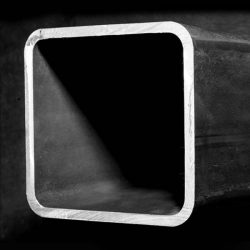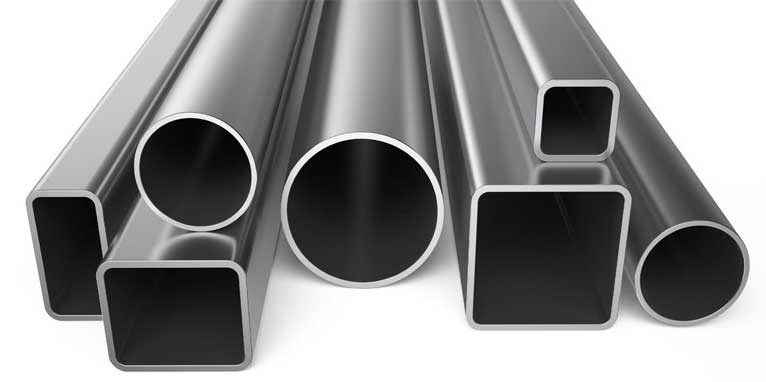
The production sections of FGA Company are made of soft non-alloy material (low carbon-ST37, ST44) or high-strength (high carbon-ST52), which are cold rolled with ERW direct welding, in round, square or rectangular shapes. These sections are made using hot-rolled steel sheets with minimum yield strength of 240-360 MPa, ultimate tensile strength of 370-520 MPa, and 15-17% elongation. By using this method after cold working, the yield strength and ultimate strength of steel increases, which is due to strain hardening behavior curve of steel.
Products produced in Foulad Gostar Atena
HSS sections are divided into two types, hot-rolled and cold-rolled. Cold-rolled HSS sections have higher yield and final strength than hot-rolled ones, and it is more noticeable in the corners of the section, which is due to cold operation and strain hardening in the behavior curve of the steel. Also, these sections are geometrically divided into two types of thin wall and thick wall. Cold-rolled HSS sections are usually classified as thin-wall if the sheet thickness is less than 4 mm, and as thick-wall if the sheet thickness is bigger than 4 mm. The advantage of thick-wall HSS sections is that these sections have a structural role in steel structures. Thick-wall round sections are used in industrial and construction structures, and thick-wall square and rectangular shapes are used as column tension and compression sections or bending beams.
HSS cold-rolled steel box sections are widely used in the design of various construction and industrial structures in different countries due to their good strength and stability and appropriate weight. The use of this type of sections in steel structures significantly reduces welding and construction operations and increases the speed of construction and implementation of the structure. FGA’s products are in the cold rolled and thick-wall category.

Due to the lack of easy access to inside of HSS sections, several alternative methods have been introduced for these fasteners. These methods include passing screws (including passing the screw through the hollow section), friction drilling (which creates the nut with friction and heat and using steel materials behind the sheet), nut spot welding inside the section, And other methods of “one-way screw” such as Hollobolt and Ultra-Twist clamp nuts.
If stiffeners are needed to strengthen the cores and wings of HSS columns, external stiffeners can be used. For this purpose, various examples of connecting components that cover the column and protect its components from concentrated loads have been produced. For more details, refer to the design criteria and examples of building components.
Due to the elimination of welding, manpower, energy and materials required to make traditional sections, the use of HSS sections has a significant advantage both in cost and production time.
Due to the high strength of steel compared to other building materials, as well as the placement of steel materials at the greatest distance from the center of the surface in HSS sections, these sections have a high strength-to-weight ratio. More explanation on the benefits of steel and HSS sections is provided in the relevant page of this website.
All material and intellectual rights of this work are reserved for Athena Foulad Gostar Company